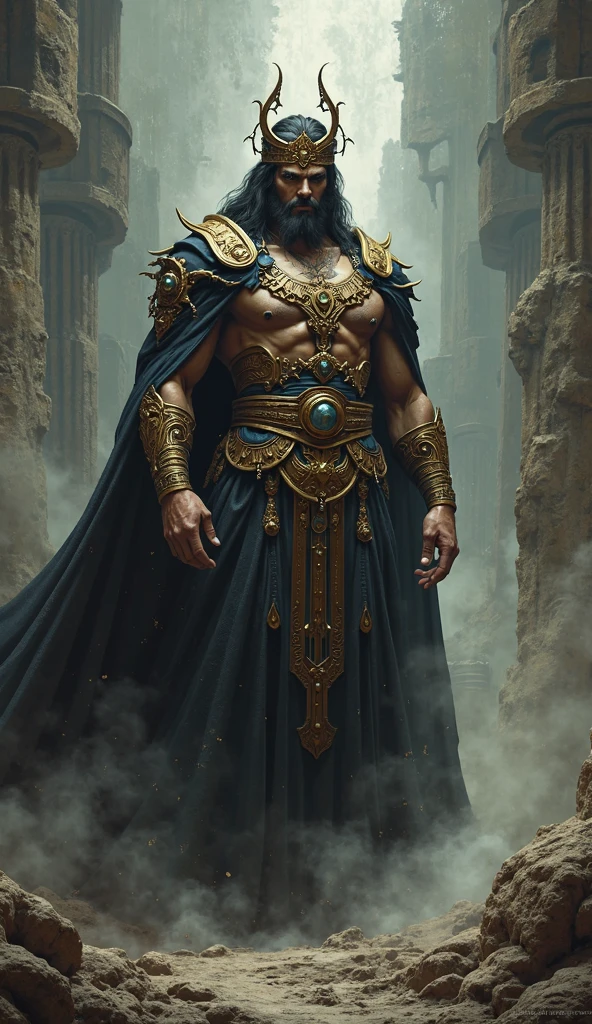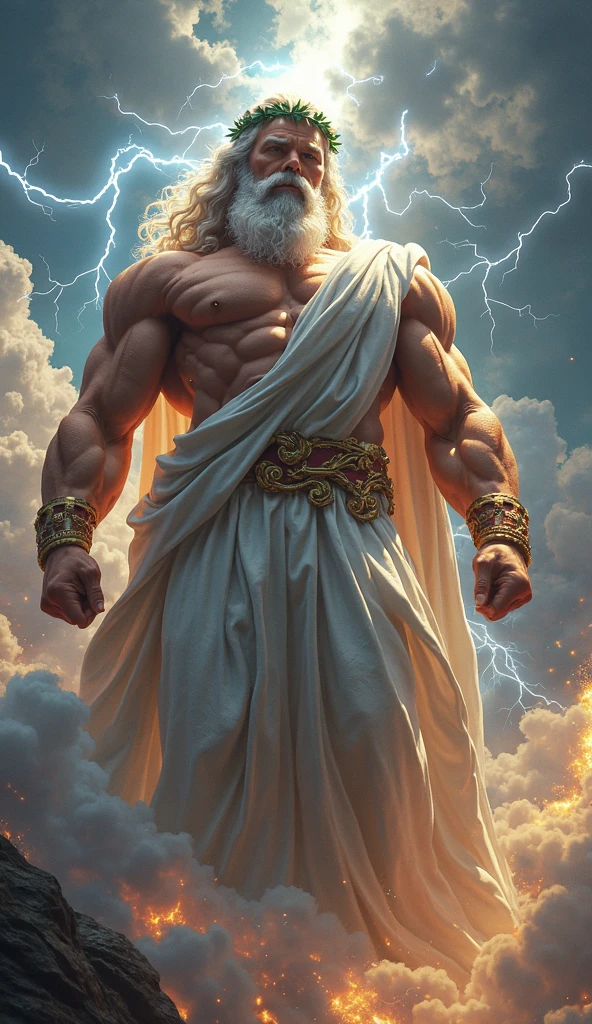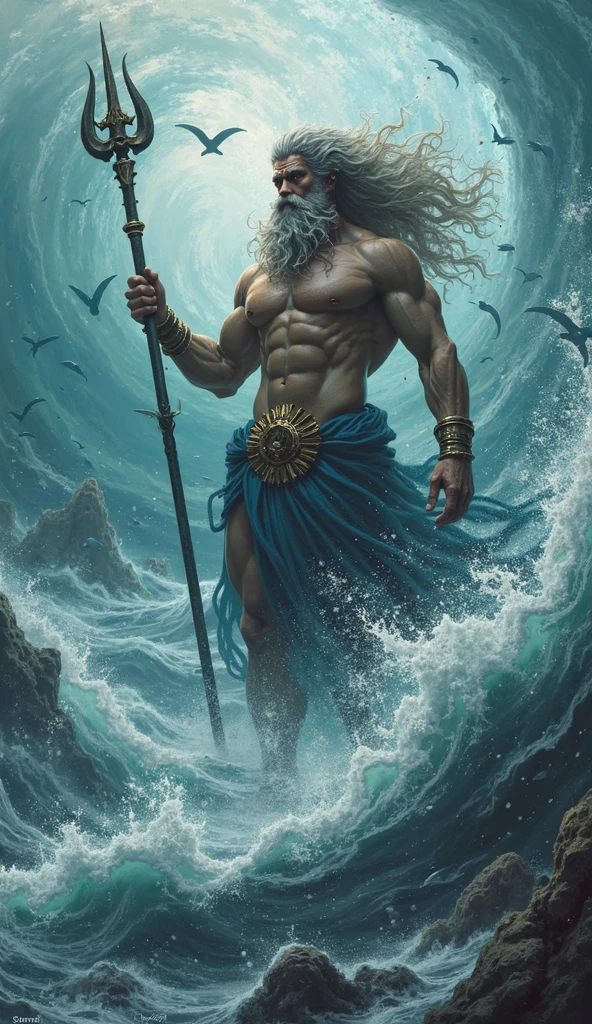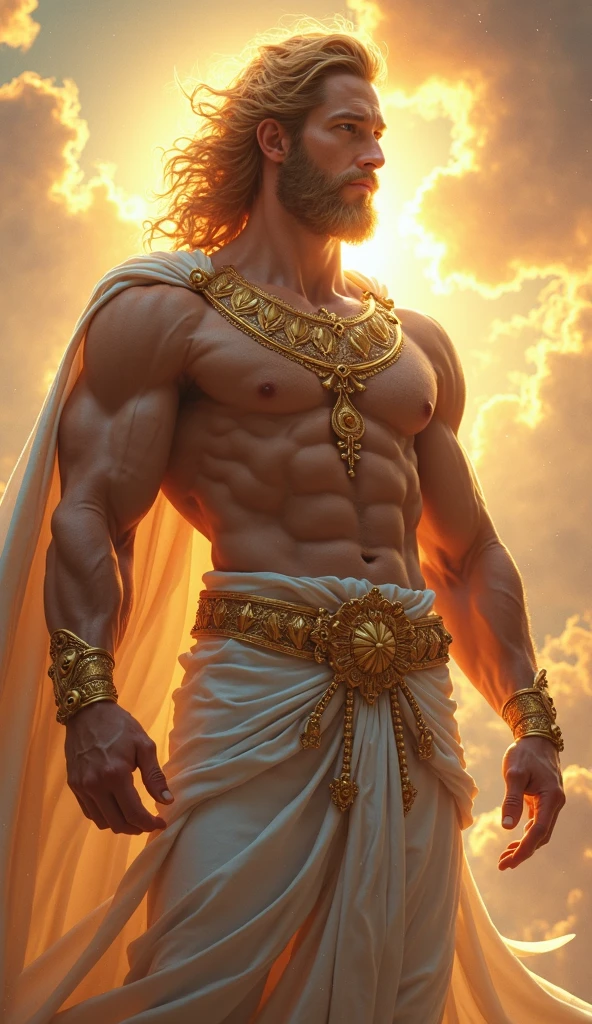The Timeless Journey of Odysseus: Unpacking the Man Behind Homer’s Odyssey
In the sprawling realm of Greek mythology, few characters resonate as deeply as Odysseus, the cunning hero of The Odyssey. This ancient epic, attributed to Homer, isn’t just a rollicking adventure—it’s a psychological blueprint for resilience, identity, and the human condition. Odysseus, known as Ulysses in Roman lore, defies the typical hero archetype. He’s not defined by brute strength but by his razor-sharp intellect, strategic mind, and relentless drive to return home after the Trojan War. So why does his 3,000-year-old story still grip modern audiences? Let’s dive into the layers of this legendary figure and uncover why his trials feel eerily relatable today.
The Master Strategist: Odysseus’s Survival Toolkit
Odysseus’s genius lies in his ability to adapt. While warriors like Achilles rely on physical prowess, Odysseus thrives on wit. Take the Cyclops Polyphemus: trapped in the giant’s cave, he doesn’t just fight—he thinks. Blinding the Cyclops with a sharpened stake, then escaping by clinging to sheep? That’s problem-solving under pressure. Homer’s line, “There is nothing more admirable than when two people who see eye to eye keep house as man and wife,” echoes Odysseus’s core motivation: his unshakable loyalty to home. But his brilliance isn’t flawless. After outsmarting Polyphemus, his ego flares—he reveals his real name, inviting Poseidon’s wrath. This mix of ingenuity and impulsivity makes him profoundly human.
By the epic’s end, Odysseus evolves. Disguised as a beggar in Ithaca, he swallows his pride, enduring insults from suitors who’ve overrun his home. This patience—a stark contrast to his younger, reckless self—showcases growth that mirrors modern concepts of emotional intelligence. It’s a reminder that true leadership isn’t about dominance but restraint.
The Psychology of Nostos: Longing as a Driving Force
Modern therapists might frame Odysseus’s journey as a quest for self-actualization, but the Greeks called it nostos—the ache for home. His seven-year captivity on Calypso’s island isn’t just a mythical detour. It’s a metaphor for stagnation, a state many recognize today. Stuck in a gilded cage with a goddess, he battles despair, a scenario that mirrors modern struggles with purposelessness. Yet, Homer doesn’t let him wallow. Building a raft to brave Poseidon’s storms becomes an act of defiance, symbolizing the reclaiming of agency. This pivot from helplessness to action aligns with narrative therapy techniques, where individuals reframe their stories to overcome trauma.
Even Odysseus’s storytelling to the Phaeacians doubles as therapy. By verbalizing his losses—his crew, his time—he processes grief and finds meaning in suffering. Modern psychology echoes this: studies show that articulating trauma can reduce its emotional weight. Odysseus’s journey is a primal example of how hardship, when contextualized, fuels growth.
Moral Gray Areas: The Flawed Hero
Let’s be real: Odysseus isn’t a saint. He’s loyal to his crew but often gambles with their lives. He loves Penelope yet sleeps with Circe and Calypso. He’s a liar, a trickster, and at times, a hypocrite. When his men unleash the winds from Aeolus’s bag, dooming their voyage, it’s a leadership failure—a lack of transparency that costs dearly. Sound familiar? It’s the ancient equivalent of a CEO hiding critical info from their team, leading to disaster.
His revenge on the suitors is equally thorny. Slaughtering 108 men feels justified, but Homer doesn’t sanitize the aftermath. The final scenes show Odysseus facing the fathers of the dead, forcing readers to ask: When does justice become vengeance? This moral ambiguity makes him timeless. He’s not a Marvel hero with a clean moral compass; he’s messy, contradictory, and undeniably human.
Odysseus in the Modern World: Why We Still Root for Him
You might think, “Cool story, but what’s it got to do with me?” Here’s the kicker: Odysseus’s struggles are universal. Stuck in a dead-end job? That’s your Cyclops. Battling loneliness post-pandemic? That’s Calypso’s island. His journey isn’t about mythical beasts—it’s about navigating life’s chaos with grit. Companies like Odyssey Coaching use his story to teach resilience, proving that ancient wisdom still slaps.
Take Telemachus, Odysseus’s son. Overwhelmed by suitors invading his home, he’s paralyzed by self-doubt—until Athena mentors him. Swap Athena for a life coach or therapist, and it’s a blueprint for personal growth. Homer’s message? Transformation doesn’t happen in a vacuum. We need guides, whether divine or human.
The Bottom Line: Odysseus as Your Inner Survivor
The Odyssey isn’t just about a hero’s return—it’s about the journey to reclaim your identity. Odysseus starts as a war-torn veteran and morphs into a symbol of tenacity. His flaws—pride, impulsivity, deceit—aren’t weaknesses but proof that redemption is possible. In an era obsessed with perfection, his story whispers: “You don’t need to be a god to matter. Just keep moving forward.”
So when life hits you with a Scylla and Charybdis moment—a lose-lose situation—channel Odysseus. Think creatively. Adapt. And remember: The path home is never straight, but every detour teaches you something. Now, that’s a lesson worth bookmarking.
Odysseus’s Trials: A Masterclass in Navigating Chaos
If Homer’s Odyssey were a modern-day self-help book, Odysseus’s encounters with sirens, sorceresses, and sea monsters would be case studies in crisis management. The second act of his journey isn’t just about survival—it’s about mastering the art of decision-making when every choice feels like a trap. From resisting the Sirens’ song to losing men to Scylla’s jaws, Odysseus faces dilemmas that mirror the “damned if you do, damned if you don’t” moments we all face. Let’s unpack how this Greek mythology icon turns adversity into strategy.
The Sirens’ Call: Temptation as a Test of Focus
When Odysseus orders his crew to plug their ears with wax and tie him to the mast, he’s not just avoiding a musical death trap—he’s engineering a accountability system. The Sirens represent distractions that derail us: social media rabbit holes, toxic relationships, or impulsive spending. By anticipating his weakness, Odysseus creates guardrails, a tactic mirrored in modern habit-forming apps like Odyssey Coaching’s focus workshops. His solution? Embrace the temptation, but control the exposure. It’s the ancient equivalent of blocking Netflix during work hours but allowing a timed break.
Modern Parallel: Decision Fatigue in Leadership
CEOs today face their own Sirens: endless data streams, stakeholder demands, and market volatility. Like Odysseus, the best leaders delegate. He trusts his crew to row past the Sirens while he absorbs the risk. Similarly, Amazon’s “two-pizza teams” (small, autonomous groups) reflect this ethos—distribute responsibility to avoid burnout. Odysseus’s lesson? Know when to lead and when to let go.
Scylla and Charybdis: Choosing the Lesser Evil
Faced with a six-headed monster or a ship-swallowing whirlpool, Odysseus picks Scylla, sacrificing six men to save the rest. This brutal calculus haunts him, but Homer doesn’t frame it as a failure. Instead, it’s a raw lesson in triage—a concept ER doctors and disaster responders know well. As psychologist Dr. Elena Maris notes, “Survivor’s guilt often stems from unavoidable trade-offs, not personal failure.” Odysseus’s grief post-Scylla mirrors the emotional toll of frontline workers during crises like COVID-19, where impossible choices became routine.
Real-World Example: Tech Layoffs and Ethical Leadership
When Twitter (now X) cut 80% of its staff in 2022, critics slammed Elon Musk’s blunt approach. Contrast this with Odysseus’s transparency: he warns his crew about Scylla, minimizing panic. Modern leaders can learn from this—explaining hard decisions fosters trust, even in loss. It’s not about avoiding pain but managing it with integrity.
Circe’s Island: The Seduction of Complacency
After transforming Odysseus’s men into pigs, Circe becomes an unlikely ally—and lover. His year-long stay with her highlights a subtler danger: comfort. With endless food, wine, and companionship, why leave? Sound familiar? It’s the “golden handcuffs” syndrome—staying in a unfulfilling job for security. Odysseus’s eventual decision to depart mirrors the courage needed to quit a toxic workplace or end a stagnant relationship. As career coach Lydia Kane puts it, “Growth demands leaving cozy prisons.”
The Psychology of “Good Enough”
Studies show humans often prefer predictable misery over uncertain joy—a phenomenon called “status quo bias.” Circe’s island embodies this. Odysseus resists by anchoring himself to a higher purpose: nostos (homecoming). Modern parallels include vision boards or “why” statements used in goal-setting therapy. By keeping Ithaca in mind, he avoids settling for “good enough.”
The Underworld: Confronting Legacy and Mortality
Odysseus’s descent into Hades is more than a ghost story. By speaking to Achilles’ spirit—who famously regrets trading long life for glory—he confronts his own mortality. Achilles’ lament, “Better to be a slave on Earth than a king in the underworld,” forces Odysseus to reevaluate his priorities. This moment mirrors midlife crises or retirement planning, where legacy outweighs short-term wins.
Legacy Building in the Digital Age
Influencers and entrepreneurs today grapple with similar questions: Is viral fame worth sacrificing privacy? Odysseus’s choice to seek a quiet life in Ithaca (over immortal fame with Calypso) aligns with the “FIRE” movement (Financial Independence, Retire Early), where quality of life trumps societal metrics of success. His journey reminds us that legacy isn’t about being remembered—it’s about living authentically.
Leadership in the Trenches: Odysseus as CEO
Odysseus’s crew isn’t just a team—it’s a fractured family. When they slaughter Helios’ sacred cattle, ignoring his warnings, it’s a breakdown of trust. The aftermath (Zeus’s thunderbolt killing all but Odysseus) parallels startup failures caused by ignoring core values. His survival alone underscores a harsh truth: leaders bear ultimate responsibility, even for others’ mistakes.
Case Study: Boeing’s 737 MAX Crisis
Boeing’s leadership ignored engineer warnings about faulty software, leading to crashes and a brand freefall. Unlike Odysseus, who owns his failures post-Cyclops, Boeing initially deflected blame. The takeaway? True leadership requires accountability, not just authority. Odysseus’s solo finish isn’t a triumph—it’s a cautionary tale about communication breakdowns.
Why Odysseus’s Flaws Make Him a Timeless Mentor
In a TikTok world of curated perfection, Odysseus’s messy journey is a breath of fresh air. He’s a reminder that resilience isn’t about avoiding mistakes but navigating their aftermath. From the Sirens to Scylla, his trials teach us to:
- Anticipate weaknesses (tie yourself to the mast)
- Accept imperfect choices (Scylla’s sacrifice)
- Reject complacency (leave Circe’s island)
- Confront mortality (Achilles’ ghost)
His story isn’t a myth—it’s a playbook for thriving in chaos. So next time life throws you a curveball, ask: What would Odysseus do? Spoiler: He’d probably outthink it.
Odysseus Unmasked: Identity, Loyalty, and the Battle for Home
By the time Odysseus washes ashore in Ithaca, he’s not just a king—he’s a shapeshifter. His journey in Homer’s Odyssey pivots from survival to reintegration, forcing him to navigate roles he’d long abandoned: husband, father, ruler. This third act isn’t about monsters but masks—the ones we wear to protect ourselves and the ones we must shed to heal. Here’s how Odysseus’s final trials mirror modern struggles with authenticity, trust, and reclaiming one’s place in a world that’s moved on without you.
The Nobody Paradox: When Hiding Becomes a Superpower
“My name is Nobody,” Odysseus tells Polyphemus, a lie that saves his life but erases his identity. Later, disguised as a beggar, he tests Ithaca’s loyalty while hiding in plain sight. This duality—being everywhere and nowhere—resonates in an era of online aliases and corporate personas. Think of whistleblowers like Edward Snowden, who operated in shadows to expose truths, or undercover agents balancing dual lives. Odysseus’s disguises aren’t cowardice; they’re strategic identity fluidity, a concept psychologist Dr. Karen Pike calls “the chameleon effect” in high-stakes environments.
Imposter Syndrome or Strategic Camouflage?
Odysseus’s return as a beggar forces him to confront his own kingdom’s decay. The suitors’ mockery mirrors the self-doubt of a returning veteran or a CEO stepping back into a company that’s evolved without them. Yet, his restraint—waiting to reveal himself—showcases emotional discipline. Modern parallels include leaders like Satya Nadella, who quietly rebuilt Microsoft’s culture before making bold moves. Sometimes, playing “nobody” lets you see everything.
Penelope’s Endgame: The Silent Strength of Strategic Patience
While Odysseus battles sirens, Penelope battles suitors—with a loom. Her famous ruse (weaving by day, unraveling by night) isn’t passive waiting; it’s tactical resistance. Like Malala Yousafzai advocating for education under oppression, Penelope uses creativity to stall destruction. Psychologists call this “agentic persistence”—maintaining agency when overt action is impossible. Her story dismantles the damsel-in-distress trope, offering a blueprint for resilience in trapped situations, from toxic workplaces to oppressive regimes.
The Modern Penelope: From Loom to LinkedIn
Consider a stay-at-home parent reentering the workforce: skills outdated, confidence shaken. Penelope’s strategy—stay engaged, adapt subtly—mirrors upskilling through online courses while managing daily pressures. Or a company like Netflix pivoting from DVDs to streaming while keeping subscribers hooked. Delaying the inevitable isn’t weakness; it’s buying time to regroup.
Fatherhood Redux: Odysseus and Telemachus’s Fragile Reunion
Odysseus’s first interaction with Telemachus isn’t a hug—it’s a strategy session. Their strained bond reflects the cost of absentee parenting, a theme familiar to military families or workaholic parents. Telemachus’s journey from boy to leader—guided by Athena as mentor—parallels programs like Big Brothers Big Sisters, where guidance fills paternal gaps. Their eventual alliance against the suitors isn’t just vengeance; it’s collaborative healing.
Rebuilding Trust: The Scaffolding Approach
Family therapists note that reconnection after long absence requires incremental steps. Odysseus doesn’t announce, “I’m your dad”—he proves himself through shared action. Similarly, companies like Patagonia rebuild consumer trust through environmental activism, not ads. Trust isn’t claimed; it’s earned through consistent proof.
The Suitors’ End: Justice, Vengeance, or Catharsis?
Odysseus’s massacre of the suitors is messy, violent, and morally fraught. Yet, in a world where cancel culture often replaces dialogue with destruction, his targeted approach—sparing the innocent poet Phemius—offers nuance. He doesn’t burn Ithaca to the ground; he surgically removes the rot. Modern equivalents include restorative justice programs, where victims confront offenders to repair harm rather than perpetuate cycles.
When to Hold the Bow: The Power of Delayed Retribution
Odysseus’s 20-year wait for vengeance seems extreme, but studies show delayed responses often yield more strategic outcomes. Consider the #MeToo movement: survivors sometimes waited decades to confront abusers, ensuring their stories couldn’t be easily dismissed. Timing, Homer suggests, transforms rage into justice.
Ithaca’s Aftermath: Can You Ever Really Go Home?
The epic ends not with a feast but with an uneasy peace. Odysseus must flee again, prophesied to wander until he finds a people “who know not the sea.” This bittersweet coda mirrors the disillusionment of returnees—soldiers, expats, even retirees—who find home irrevocably changed. The lesson? Closure isn’t a place; it’s acceptance of flux.
The “Odyssey” Mindset for Modern Nomads
Digital nomads and remote workers embody this today: home is wherever Wi-Fi exists. Platforms like Airbnb market “belong anywhere,” echoing Odysseus’s adaptability. Yet, his final prophecy warns against eternal wandering—balance roots and wings.
Odysseus’s Legacy: The Hero We Love to Hate (and Hate to Love)
Flawed, cunning, relentless—Odysseus defies easy categorization. In an age of polarized heroes and villains, he’s a reminder that complexity defines humanity. From Walter White’s moral descent in Breaking Bad to Elizabeth Holmes’s rise and fall, we’re fascinated by figures who straddle light and dark. Odysseus’s enduring appeal? He forces us to confront our own contradictions.
The Odyssey isn’t a tidy myth—it’s a mirror. Whether navigating identity masks, rebuilding broken trust, or seeking home in a shifting world, Odysseus’s saga whispers: “The journey isn’t about becoming someone new. It’s about uncovering who you’ve always been.” Now, grab your bow—metaphorical or otherwise—and take aim.
Odysseus’s Eternal Flame: Why The Odyssey Still Ignites Our Imagination
Three thousand years after Homer first sang of Odysseus’s voyage, the man and his myth refuse to fade. Why? Because Odysseus isn’t just a Greek mythology relic—he’s a mirror for our modern souls. In this final reckoning, we’ll explore how his journey transcends time, offering blueprints for innovation, legacy, and the quiet heroism of everyday life. Buckle up: This isn’t an ending. It’s a launchpad.
The Innovator’s DNA: Odysseus as Silicon Valley’s First Founder
Before “disrupt” was a buzzword, Odysseus was pivoting. The Trojan Horse? That’s the ancient MVP (Minimum Viable Product)—a lean, experimental solution to an entrenched problem. His crew? A ragtag startup team navigating uncertain markets (literally). When he tricks Polyphemus by naming himself “Nobody,” he’s essentially beta-testing a prototype. Fail fast, iterate faster. Sound familiar? It’s the ethos of companies like SpaceX, where rapid experimentation beats perfection. Elon Musk’s “production hell” echoes Odysseus’s shipwrecks: messy, necessary steps to breakthroughs.
From Ithaca to IPO: Risk Management, Ancient-Style
Odysseus’s call to sail near Scylla instead of Charybdis mirrors modern risk matrices. Startups like Airbnb faced similar choices during COVID-19: pivot to virtual experiences (lose some revenue) or risk total collapse. Odysseus teaches us: Not all risks are equal. Sometimes, you sacrifice short-term gains (six crew members) to survive the storm.
The Quiet Hero: Redefining Strength for the 21st Century
Forget Thor’s hammer—Odysseus’s greatest weapon is his voice. He talks Circe into freeing his men, negotiates with ghosts in Hades, and persuades Penelope he’s legit. In an age of influencers shouting into voids, his mastery of rhetoric feels revolutionary. Malala Yousafzai’s U.N. speeches or Greta Thunberg’s climate strikes channel this same power: persuasion over force. As linguist Dr. Sarah Lin notes, “The ability to change minds without violence is the ultimate hack—and Odysseus wrote the code.”
Storytelling as Survival Tool
When Odysseus recounts his adventures to the Phaeacians, he’s not just killing time—he’s securing resources (a ship home). Modern founders pitch VCs with similar narratives, turning personal trials into investment-worthy sagas. TED Talks, LinkedIn posts, even dating profiles rely on this ancient truth: We’re wired to trade stories for trust.
Legacy on a Loop: How The Odyssey Shapes Pop Culture
From James Joyce’s “Ulysses” to Coen Brothers’ “O Brother, Where Art Thou?”, Odysseus’s DNA is everywhere. But why reboot a 3,000-year-old story? Because his arc—loss, resilience, redemption—is the ultimate algorithm. Marvel’s Tony Stark? A tech-bro Odysseus with PTSD. “The Mandalorian”? Spacefaring nostos with Baby Yoda as Telemachus. Even video games like “Hades” let players retrace his steps. As screenwriter Aaron Sorkin says, “Great templates are eternal. Homer just got there first.”
Fan Fiction’s First Muse
Odysseus’s open-ended finale (he’s fated to wander again) invites reinvention. It’s why fan theories thrive: Is he a time traveler? A alien? This ambiguity fuels franchises like Star Wars, where lore expands infinitely. Homer’s lesson: Leave room for the audience to play.
The Everyday Odyssey: Finding Epic in the Mundane
You don’t need a cyclops to live an Odyssean life. A single parent juggling jobs? That’s Scylla and Charybdis. A refugee rebuilding abroad? That’s Ithaca 2.0. Psychologists call this “narrative identity”—framing your life as a hero’s journey to build resilience. Apps like Odyssey Coaching use this framework to help users reframe burnout as “trials” and small wins as “quest completions.”
Micro-Heroism in Action
Consider “The Dinner Table Odyssey”: A family meal where kids battle veggies (Sirens), parents negotiate tantrums (Lotus Eaters), and everyone reaches the holy grail—bedtime. By mythologizing the mundane, we tap into ancient reservoirs of patience and grit.
The Final Lesson: Odysseus Never Dies
Homer’s epic ends, but Odysseus’s story doesn’t. He’s prophesied to wander until he finds a people “who know not the sea”—a metaphor for perpetual reinvention. In our era of AI, climate shifts, and digital nomadism, this feels less like a curse and more like a survival guide. The takeaway? Stagnation is the real monster.
Your Odyssey Awaits
Whether you’re launching a app, healing from loss, or just trying to adult, Odysseus’s playbook applies. Be cunning when brute force fails. Embrace detours as data-gathering. And remember: Home isn’t a place—it’s who you become along the way. Now, go get shipwrecked. The best stories are written mid-storm.
The Odyssey endures because it’s not about a hero—it’s about the hero in us. In a world obsessed with endings, Odysseus whispers: “The journey is the destination. Keep sailing.”



